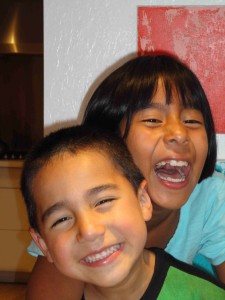Today I’m going to post links to several articles about adoption you may have missed–or not, depending on your level of engagement with the subject. First, from Good Housekeeping about a disrupted adoption. Here’s how I introduced the article when I posted the link on Facebook:
Also, the Joplin (Missouri) Globe reports that Encarnacion Bail Romero will appeal her adoption case to the Supreme Court:
The U.S. Supreme Court is being asked to hear an appeal on behalf of a Guatemalan woman seeking to overturn the adoption of her biological child by a Carthage couple.
Attorneys for Encarnacion Romero filed the request on Monday. The action represents the court of last resort, after the Missouri Supreme Court late last year refused to hear the woman’s appeal. That action unsuccessfully challenged a Missouri Court of Appeals ruling that terminated her parental rights.
“We’ve asked, but that doesn’t mean that they’ll take it,” said Joplin lawyer Bill Fleischaker, one of several volunteer attorneys representing the biological mother. “They hear very few of the cases filed,” he said.
According to information on the Supreme Court’s website, about 10,000 cases are filed annually, and fewer than 80 — less than 1 percent — are accepted for hearings by the court.
Joe Hensley, attorney for adoptive parents Seth and Melinda Moser, said he was notified Monday of the filing. The Mosers have been caring for the child — now 7 — since he was about a year old. Hensley said he has not yet met with the Mosers to discuss a response, noting that he, until Monday, was uncertain if an appeal would be filed. “But nothing surprises me about this case anymore,” he said.
***
Romero was arrested in May 2007 in an immigration raid while she was working at a Barry County poultry processing plant. She left the child with her brother, who turned him over to a sister. She then left the baby with a Carthage couple who agreed to the adoption by the Mosers.
The mother’s parental rights were terminated based on arguments that the child had been abandoned because the mother made no attempt to provide for the boy during the two years when she was in jail, even though she had the means to do so. The court also found that the mother left the child in the hospital after giving birth, that she failed to keep doctor appointments or obtain baby formula or other help available for the child, and that she made no arrangements to ensure that the infant would be cared for in case she was arrested.
IMMIGRANTS WHO ARE IN THE U.S. without proper documentation and are jailed in violation of immigration law normally are deported, but Encarnacion Romero has been allowed to stay in the country while her case is being appealed.
In Foreign Adoptions by Americans Decline Sharply, David Crary of the Associated Press reports that calendar year 2013 reported the lowest number of international adoptions to the US since 1992, for a total of 7,074. Everyone agrees that reform was needed, no question. But instead of repairing systems, the implementation of the Hague seems simply to have shut them down.
Finally, a program at UCLA to help families with children adopted internationally, called the International Adoption and Travel Clinic. With adoptions sharply declining, I wonder about the clinic’s timing, but better late than never, I suppose. Friends report other clinics in Philadelphia, the Children’s Hospital International Adoption Clinic in Oakland, California (Dr. Nancy Curtis), and Cincinnati Children’s Hospital (Dr. Mary Staat).
That’s it for now.



 ShareThis
ShareThis

